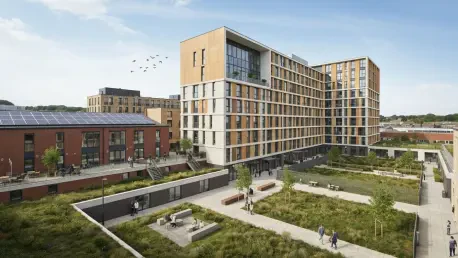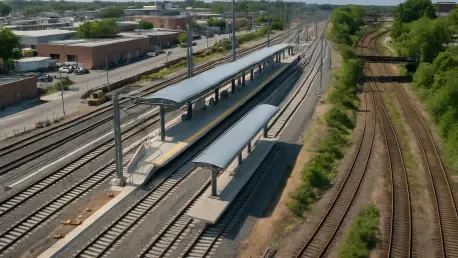

In the ever-evolving landscape of housing options across Georgia, a new trend is capturing the attention of renters seeking a blend of luxury, convenience, and community, and nestled in Lawrenceville at 3440 Sugarloaf Parkway, a unique development has emerged as a game-changer in the rental market.

Diving into the world of innovative construction and heritage preservation, I’m thrilled to sit down with Luca Calarailli, a seasoned expert in construction, design, and architecture. With a deep passion for integrating technology into building practices, Luca brings a wealth of knowledge to our

In an era where the construction industry faces mounting pressure to balance safety with environmental responsibility, a groundbreaking development has emerged to address these dual challenges. Fire-rated glazing, long valued for its critical role in protecting lives and property, is now stepping

In a heartbreaking incident that underscores the critical importance of workplace safety, a construction worker lost his life in a preventable fall through an unprotected skylight at a property in Farnborough, UK. This tragedy, involving Skyladder Construction Limited, has brought to light the dire

Idaho’s commercial real estate market is witnessing an extraordinary surge this year, with bustling activity stretching from the vibrant streets of Boise to the quieter corners of Twin Falls, reflecting a robust economy powered by diverse industries, a growing population, and a business-friendly

In a bustling studio, a young designer sketches furiously, racing against time to perfect a concept that could redefine urban living, while across the globe, an architecture firm brainstorms a sustainable structure that might just solve a pressing environmental issue. These scenes capture the

In the heart of Northeast Washington, D.C., a massive $705 million project at Ivy City Rail Yard is underway, promising to reshape rail travel along the Northeast Corridor. With millions of passengers relying on Amtrak for efficient and reliable service, the stakes for modernizing rail

In the heart of Midland, Michigan, a transformative project is underway that could redefine the landscape of affordable housing for countless families struggling to find a place to call home. Known as The Dean – Apartments at Eastlawn, this ambitious development is converting a 6.4-acre site, once

In a startling turn of events for the UK construction sector, Van Elle, a leading ground engineering specialist, has sounded the alarm on its financial outlook, citing significant challenges that could ripple across the industry and impact many stakeholders. The company recently released

The modern farmhouse style has become a beloved choice for homeowners seeking a harmonious blend of rustic charm and contemporary sophistication, offering a design that feels both timeless and refreshingly current. With its roots in traditional rural architecture—think steep gabled roofs and
ITCurated uses cookies to personalize your experience on our website. By continuing to use this site, you agree to our Cookie Policy